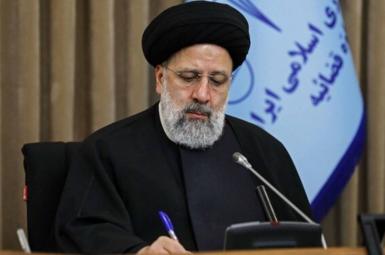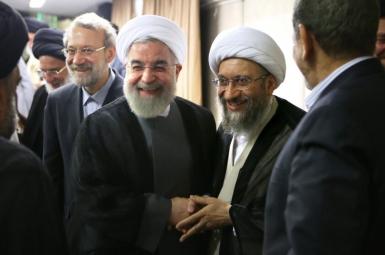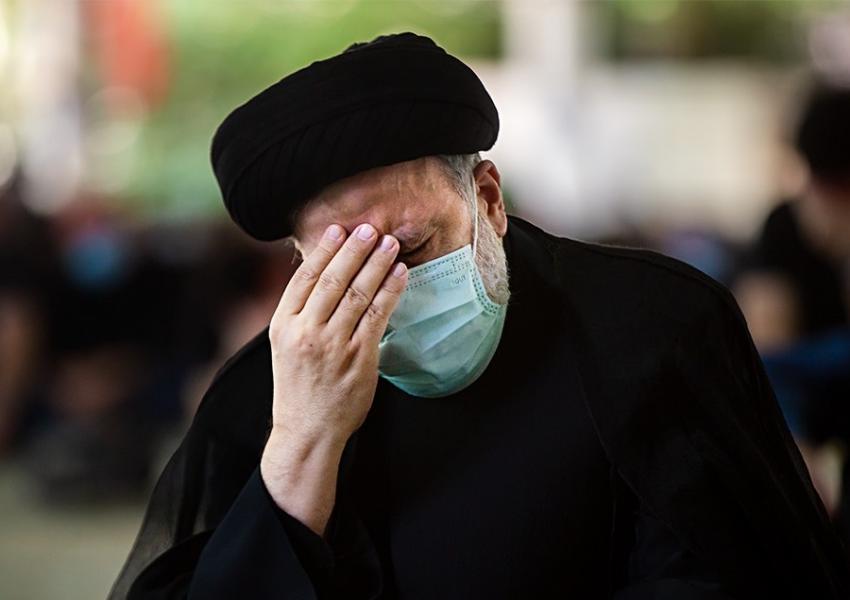
Raisi Elevates Sanctioned Officials With Ties To Khamenei
While much of the international community awaits the resumption of the Iran nuclear talks in Vienna, Iran’s President Ebrahim Raisi (Raeesi) has continued to slowly fill his administration. His choices for vice president and some lower-level positions provide insights into the future direction of his presidency. This article will profile his new vice president for executive affairs, vice president for legal affairs, vice president and head of the Martyrs and Veterans Affairs Foundation, deputy foreign minister, and deputy minister of defense and armed forces support.
To date, Raisi’s presidency continues to be the most sanctioned and wanted presidency since 1979. The president, first vice president, chief of staff, vice president for executive affairs, vice president for parliamentary affairs, vice president for economic affairs, vice president and head of the Atomic Energy Organization, and ministers of defense, interior, roads, oil, and tourism are all sanctioned. The deputy minister of defense and armed forces support has also been sanctioned.
Sowlat (Solat) Mortazavi
Raisi named Mortazavi as his vice president for executive affairs. Mortazavi has held a variety of positions which intersect with Raisi’s own resume and the Office of the Supreme Leader. Mortazavi served as head of the real estate department of the Mostazafan Foundation, which is controlled by the Supreme Leader. He also was director of the Tehran branch of Astan Quds Razavi, which Raisi previously headed. Mortazavi was a onetime mayor of Mashhad, which has remained a family power base for Raisi, with his father-in-law serving as Friday Prayer Leader in Mashhad and representative of Iran’s Supreme Leader to Razavi Khorasan Province. Mortazavi had a stint as deputy interior minister for political affairs and head of the Iranian election committee for parliamentary elections in 2012 and the presidential election in 2013.
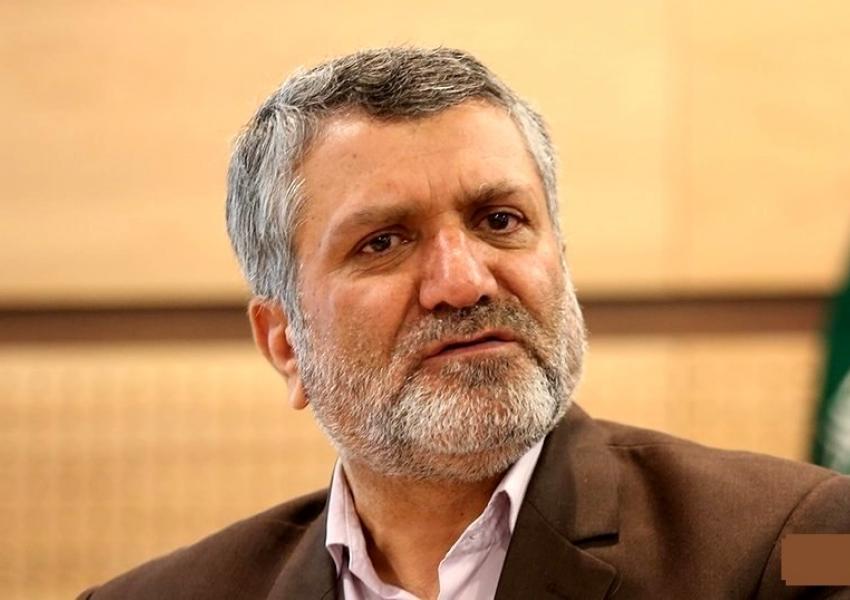
The European Union sanctioned him in 2012. In the designation, it cites his tenure as mayor of Mashhad “where public executions regularly happen.” It also lists his time as a deputy interior minister during the Ahmadinejad administration, when the EU charged that he “was responsible for directing repression of persons who spoke up in defense of their legitimate rights, including freedom of expression.” Mortazavi’s experience is broadly consistent with his immediate predecessors, however some had more senior experience in a presidential administration. For example, Mohammad Shariatmadari, who served in the post during the Rouhani administration, had already been a minister of commerce in the Khatami administration prior to his vice presidency. Hamid Baghaei, who was vice president for executive affairs during the Ahmadinejad presidency, had previously held another vice presidency, as head of the Cultural Heritage and Tourism Organization, before transitioning to executive affairs.
Mohammad Dehghan
Raisi has named Dehghan as vice president for legal affairs. Dehghan has held associations with powerful patrons—namely Raisi and Mohammad Bagher Ghalibaf, who now serves as speaker of parliament. Dehghan previously served as a member of Iran’s parliament and was nominated to serve on the Guardian Council by Raisi when he was as chief justice. He earlier served as campaign chairman for Ghalibaf when he ran for president in 2017.
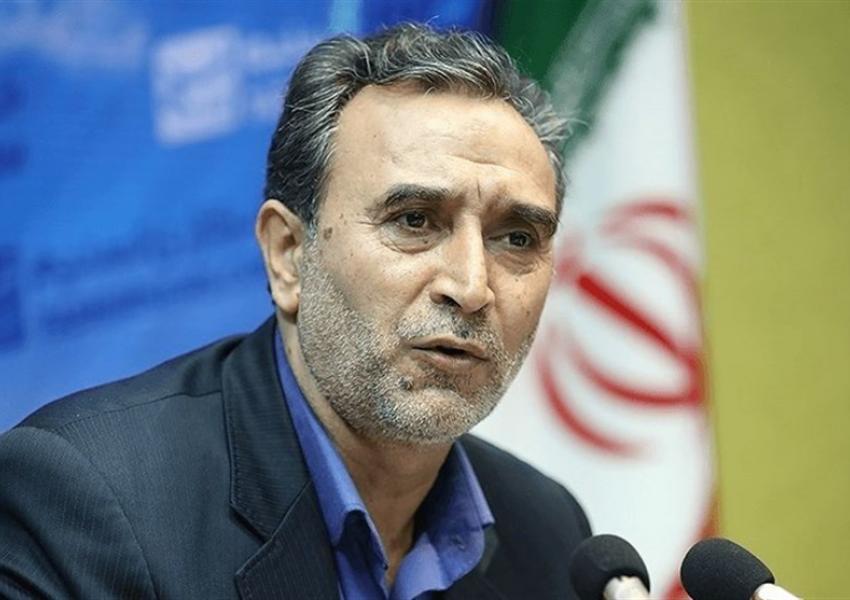
Dehghan replaces La’ya Joneydi, who had a different set of experiences—largely academic. Whereas Dehghan has been a fixture on Iran’s political scene and embedded himself in the inner sanctums of Iranian legal institutions, Joneydi has more Western exposure, receiving a research scholarship at Harvard in 2002, and also teaching at the University of Tehran. Rouhani put her skills to use at the International Court of Justice, where Iran filed a lawsuit against the United States. This contrast is emblematic of Raisi surrounding himself with figures in his administration with less international exposure.
Amir Hossein Ghazizadeh Hashemi
Raisi named Ghazizadeh Hashemi, a former 2021 presidential candidate, as vice president and head of the Martyrs and Veterans Affairs Foundation. To date, Raisi has managed to find jobs for every conservative presidential candidate during the 2021 presidential election cycle—except for Saeed Jalili. A surgeon and ENT specialist by training. Ghazizadeh Hashemi served for years as a legislator, rising to become first deputy speaker of parliament. Ghazizadeh Hashemi brings a more political set of experiences to the role, in contrast to his predecessors.
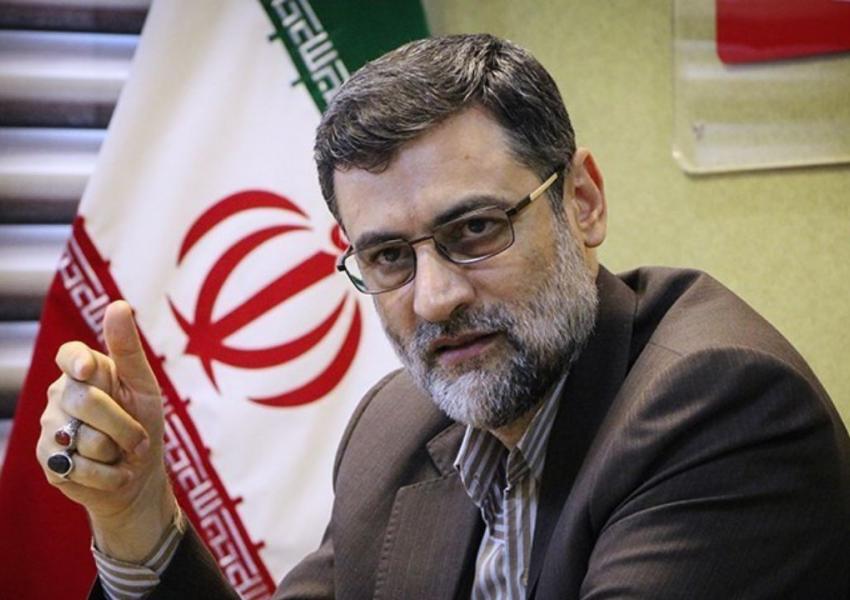
The US government sanctioned the Martyrs and Veterans Affairs Foundation. In the designation, the US Treasury Department found that “senior Martyrs Foundation officials were directly involved in Hezbollah operations against Israel during the July-August 2006 conflict.”
Ali Bagheri Kani
In a significant move, Iran’s foreign minister announced on Tuesday that Bagheri Kani would become deputy foreign minister for political affairs, replacing Abbas Araghchi, a longtime diplomat who has played a critical role in the nuclear negotiations with the P5+1. Bagheri Kani, who served as Raisi’s transition director at the Foreign Ministry, has risen through the ranks by virtue of powerful family ties. He is the brother-in-law of Iran’s Supreme Leader’s daughter.
Educated at Imam Sadegh University in economics, Bagheri Kani has held a series of posts, including director-general of Central and Northern Europe in the Foreign Ministry, acting deputy foreign minister for European Affairs, as a deputy to Saeed Jalili when he served as secretary of the Supreme National Security Council and chief nuclear negotiator, campaign manager for Jalili when he ran for president unsuccessfully in 2013, and later as a deputy in Iran’s judiciary for international affairs and secretary of the High Council for Human Rights under Raisi’s chief justiceship.

Bagheri Kani’s long professional association with Jalili is important, as Jalili has been the only conservative presidential candidate to date not to receive a new position following the 2021 presidential election. Thus, his ascension as deputy foreign minister could be interpreted as a concession to Jalili following the race.
Bagheri Kani has been a staunch critic of the Iran nuclear deal. He authored an introduction to the Persian version of former US Undersecretary of State and current Deputy Secretary of State Wendy Sherman’s memoir, where he called the outcome of diplomacy with the United States as “unmitigated damage.”
If he is indeed chief nuclear negotiator, Bagheri Kani still will not be a decision-maker. Nevertheless, his style will be different from Araghchi and former Foreign Minister Javad Zarif, who both had developed close relationships with their international counterparts and knowledge of the nuclear file. Indeed, Bagheri Kani lacks their fluency in English and negotiations under Jalili were more difficult.
In Zarif’s new book, The Sealed Secret, he alleges that there were no minutes recorded during Jalili’s tenure—during which Bagheri Kani served—and that negotiators reported the same meeting differently back to Tehran, with “numerous errors in recording crucial words and phrases.” If he is dispatched by Tehran, it’s a signal that Iran’s Supreme Leader may drive an even harder bargain whenever the Vienna talks restart, demanding more concessions.
Mehdi Farahi
On Tuesday, Iranian media announced the appointment of Mehdi Farahi as Iran’s deputy minister of defense and armed forces support. He has held a series of senior posts throughout his career, including as deputy defense minister for logistics, research, and industry, head of the Aerospace Industries Organization, and managing director of the Defense Industries Organization.
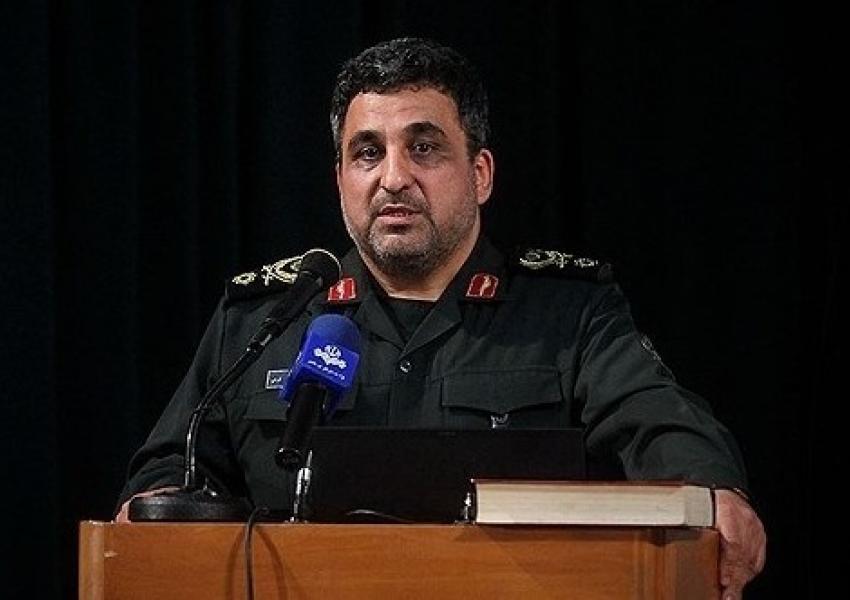
Farahi replaces Ghassem Taghizadeh, who quickly found a landing spot as president of Malek Ashtar University of Technology. Farahi, like Taghizadeh, is an IRGC officer, and he balances the senior ranks of the Ministry of Defense and Armed Forces Logistics (MODAFL) as the new defense minister, like his predecessor, is a member of Iran’s regular military (Artesh).
Farahi is sanctioned by both the European Union and the United States. In fact, under the terms of the Iran nuclear deal, Farahi’s European Union sanctions are scheduled to be lifted by October 2023. The United States imposed its sanctions on Farahi in 2016, and in its designation, it noted Farahi has “been critical to the development of the 80-ton rocket booster, and…travelled to Pyongyang during contract negotiations.” Thus, Farahi’s experience and ties to North Korea should raise question marks for the international community on the future contours of cooperation between Tehran and Pyongyang.




